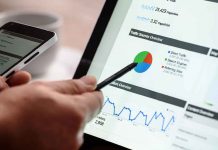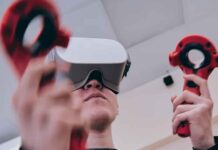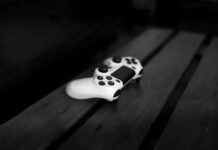When you think about technology and health, the first thing that comes to mind is probably advances in medical technology in hospitals. It’s true that tools for diagnosis and surgery are becoming more and more advanced, but health technology is making strides in many places outside of hospitals, clinics and doctors’ offices. Below are many of the ways that health technology is changing the day to day lives of people, how they get their healthcare and how they maintain their health.
Telehealth
Telehealth can’t substitute for every visit to the doctor, but it can replace a lot of them. For those who are chronically ill, people who aren’t sure whether their symptoms merit a doctor’s visit or those in remote locations, telehealth can be a great way to make contact with a medical professional. Connecting over videoconferencing software online can also be useful for follow-up visits, and even some elements of hospice care may be delivered remotely in some cases.
Insurance
Obtaining insurance, whether it is life, health or long-term care, has changed a great deal. It’s easy to go online and comparison shop. On top of that, some insurance companies are introducing apps that pair with your fitness and other tracking apps to gather information about healthy practices that may affect your premiums. For example, you may pay less if you are a nonsmoker or you exercise regularly. Companies have made it easier to research and apply for insurance as well. You can also find out a lot online about your policies and the benefits they can offer. For example, many people may not realize that if they no longer need a life insurance policy or they need money, they can get cash for a life settlement instead of simply surrendering the policy. You can go online to get instant valuation from Policy Bank. This can allow you to buy a policy, pay into it for as long as you need it and still get paid when you are ready to give it up.
Trackers
The fitness apps mentioned above are among the many ways that you can track your exercise, your food intake and your sleep. The accuracy of the information provided by these devices varies, with sleep trackers in particular not always giving the most precise picture of whether the user is getting quality sleep. However, they can all still be useful in getting an overview of where you are having trouble sleeping, understanding your eating patterns or learning that you are not getting as much exercise as you thought.
Digital Monitoring
Advances in remote monitoring have also greatly changed how people and their doctors can follow and track certain conditions and even test for them. For example, if you think you have sleep apnea, you may be able to take a device home with you and be tested there instead of going to a sleep lab. There are devices that will alert users if their blood sugar spikes while anticoagulation devices mean that people who need regular testing for blood clots can do the test at home. There are even smart pill dispensers that can help physicians monitor whether patients are taking their medication in the right way.







